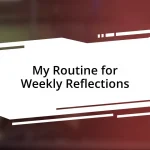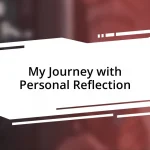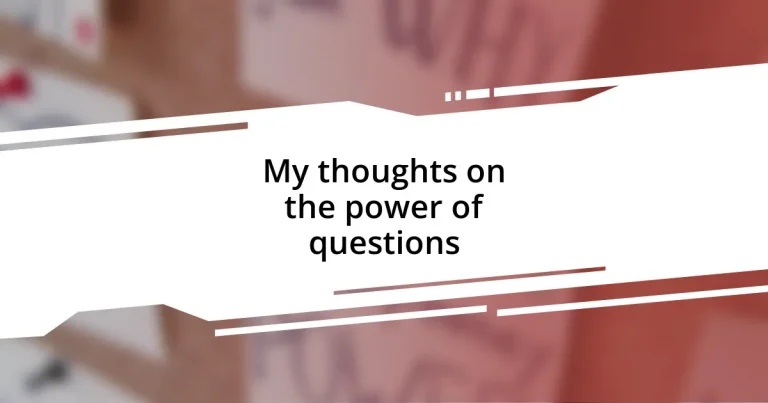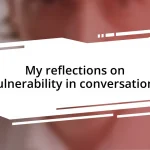Key takeaways:
- Well-placed questions can spark creativity and lead to unexpected solutions in discussions.
- Self-reflective questions promote personal growth by uncovering deeper truths and motivations.
- Open-ended questions foster a culture of collaboration, encouraging diverse ideas and critical thinking.
- Techniques like the “5 Whys” and allowing silence after asking questions can uncover insights and enhance problem-solving.
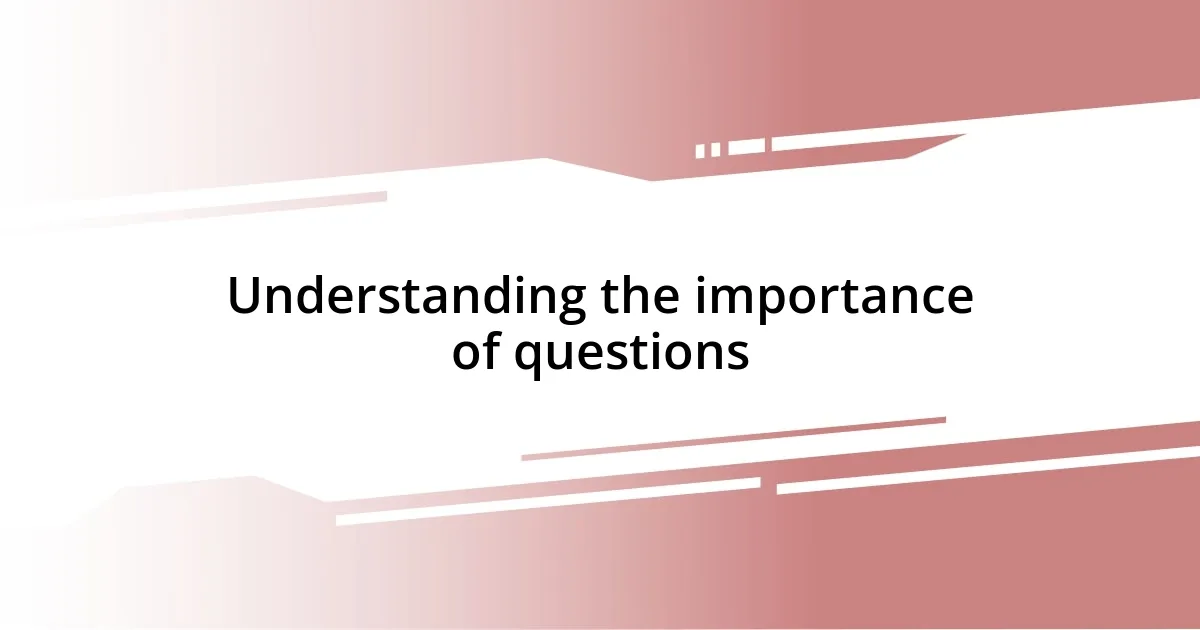
Understanding the importance of questions
Questions hold immense power. I remember a time when a simple inquiry during a meeting transformed the entire conversation. By asking, “What if we approached this differently?” I not only sparked creativity but also encouraged my colleagues to think outside the box. It made me realize that a well-placed question can open up new avenues of thought and lead to unexpected solutions.
Reflecting on my own experiences, I’ve noticed that questions often reveal deeper truths we might overlook. For instance, asking myself, “Why do I feel this way?” about a challenging situation has led me to insights that significantly shifted my perspective. These kinds of self-reflective questions can act as gateways to self-discovery and personal growth, prompting us to explore our motives and fears.
It’s fascinating to consider how asking questions can foster connection and understanding with others. When I engage with someone and genuinely ask about their thoughts, it creates an inviting space for conversation. This openness not only builds trust but also deepens relationships, making us feel more connected to one another. Isn’t it incredible how the right question can bridge gaps and illuminate shared experiences?
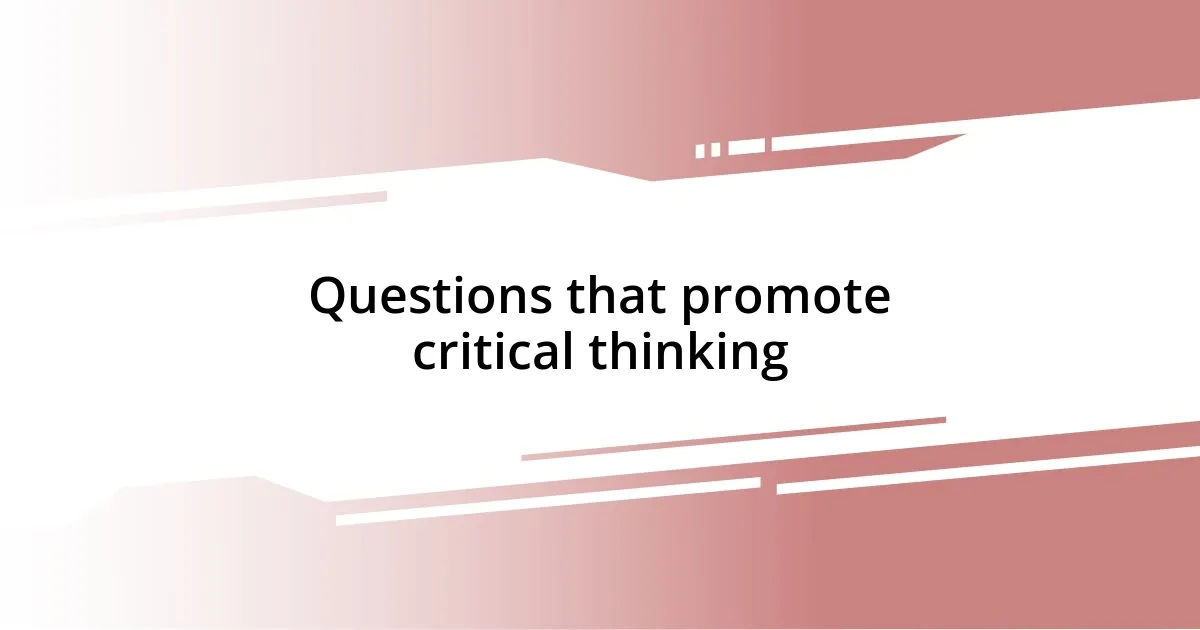
Questions that promote critical thinking
Asking the right questions can unlock critical thinking and drive deeper understanding. I recall a brainstorming session where someone posed, “What evidence supports our current approach?” This challenge shifted our focus from assumptions to data, compelling us to evaluate our strategies in a more rigorous manner. It was a powerful reminder that critical thinking often flourishes when we press ourselves to justify our choices.
Here are some thought-provoking questions that can encourage critical analysis:
- What are the implications of our decision if we choose this path?
- How might different perspectives influence the outcome?
- What assumptions are we making, and are they valid?
- Can we identify any potential biases in our reasoning?
- What alternative solutions have we considered, and why are they less favorable?
These questions not only push for clarity but also create a richer dialogue among team members, fostering an environment where critical thinking thrives.
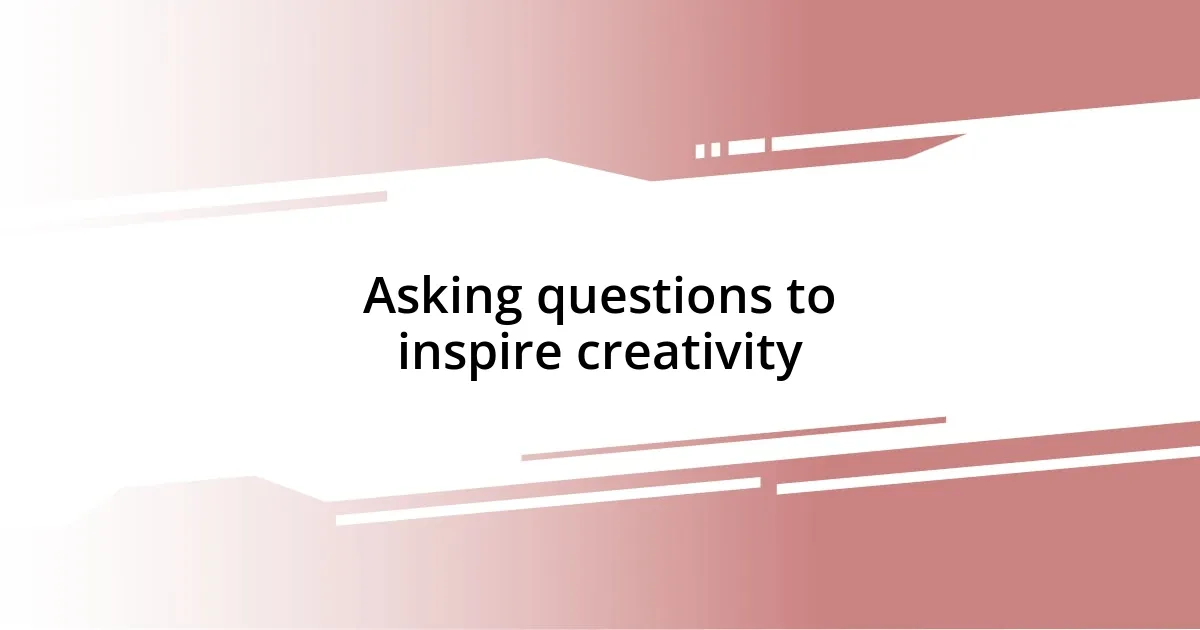
Asking questions to inspire creativity
Asking questions is one of the most effective ways to ignite creativity in any setting. I remember a time when I posed the question, “What would we do if there were no limitations?” During a team brainstorming session, this unexpected inquiry unleashed a flood of imaginative ideas. It was exhilarating to see how my colleagues began to envision a world where anything was possible. This moment reinforced my belief that by challenging conventional boundaries with our questions, we create fertile ground for innovation.
In another instance, I encountered a creative block while working on a project. I stopped to ask myself, “What if I added a completely different perspective?” This simple question turned my mindset around and opened my eyes to new approaches I hadn’t considered. By allowing myself the freedom to explore divergent thoughts, I not only overcame my block but also discovered an exciting direction that ultimately transformed the outcome of my work.
When we ask questions that provoke thought, we invite collaboration and diversity of ideas, which can be truly inspiring. I find that in group settings, asking questions like “How can we combine our unique strengths?” cultivates a culture of cooperation. It encourages everyone to share their insights and talents, resulting in a rich tapestry of ideas that I believe is essential for creative success.
| Types of Questions | Impact on Creativity |
|---|---|
| Open-ended Questions | Encourages exploration and diverse ideas. |
| Challenging Assumptions | Pushes boundaries and invites innovative thinking. |
| Visualizing Alternatives | Fosters imaginative solutions beyond the norm. |
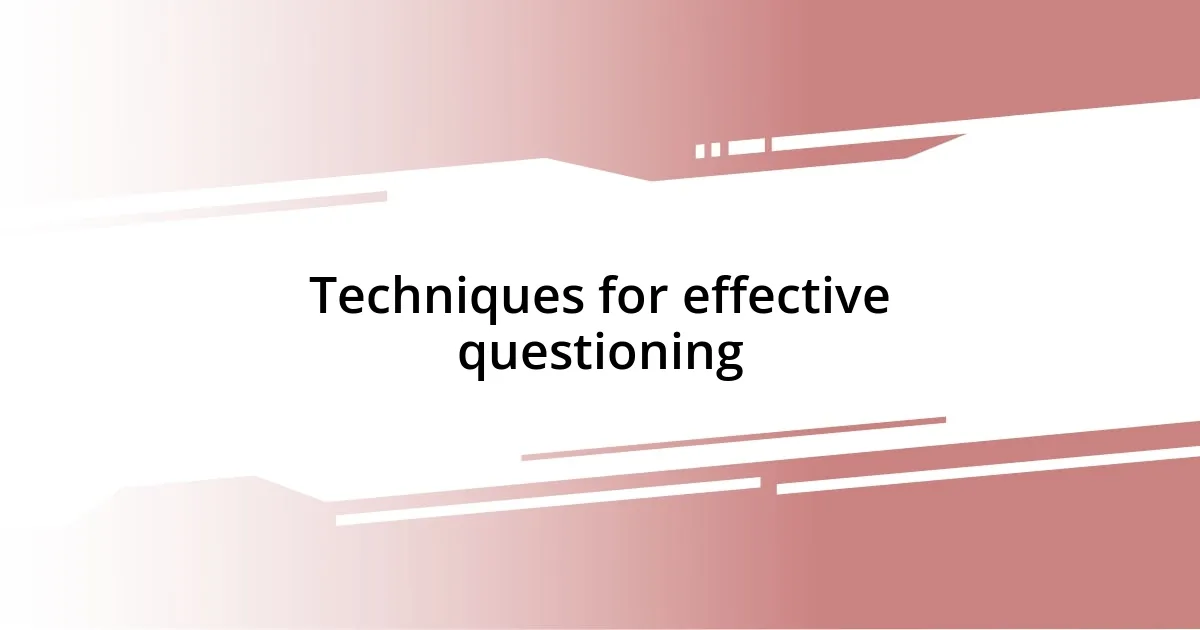
Techniques for effective questioning
One powerful technique I’ve found effective is asking open-ended questions. They are designed to provoke thought and elicit more detailed responses. For instance, during a recent project kickoff, I asked my team, “What skills do we each bring to the table, and how can we leverage them?” This sparked a vigorous discussion that allowed everyone to share their unique talents. By creating a space for dialogue, we not only identified resources but also built enthusiasm and ownership over our collective goals.
Another approach involves employing the “5 Whys” technique, which encourages deep exploration of underlying issues. I once faced a challenge in a project where we missed a deadline. By repeatedly asking “why” we could uncover that a miscommunication had caused a bottleneck. This method isn’t just about identifying problems; it fosters a culture of accountability and proactive problem-solving. Have you ever reflected on how digging deeper can lead to crucial insights? I find that many times, the answers lie beneath the surface, waiting for us to unravel them.
Finally, incorporating silence after posing a question can be incredibly impactful. I recall a meeting where I asked, “What changes can we make to enhance our workflow?” Instead of rushing to fill the silence, I waited. It felt a bit awkward at first, but within moments, brilliant ideas began to flow as my colleagues felt encouraged to think more deeply. This technique points to the importance of creating space for thought, which can often lead to unexpected and valuable contributions to discussions. How often do we overlook the power of a simple pause? In my experience, it’s a game changer.
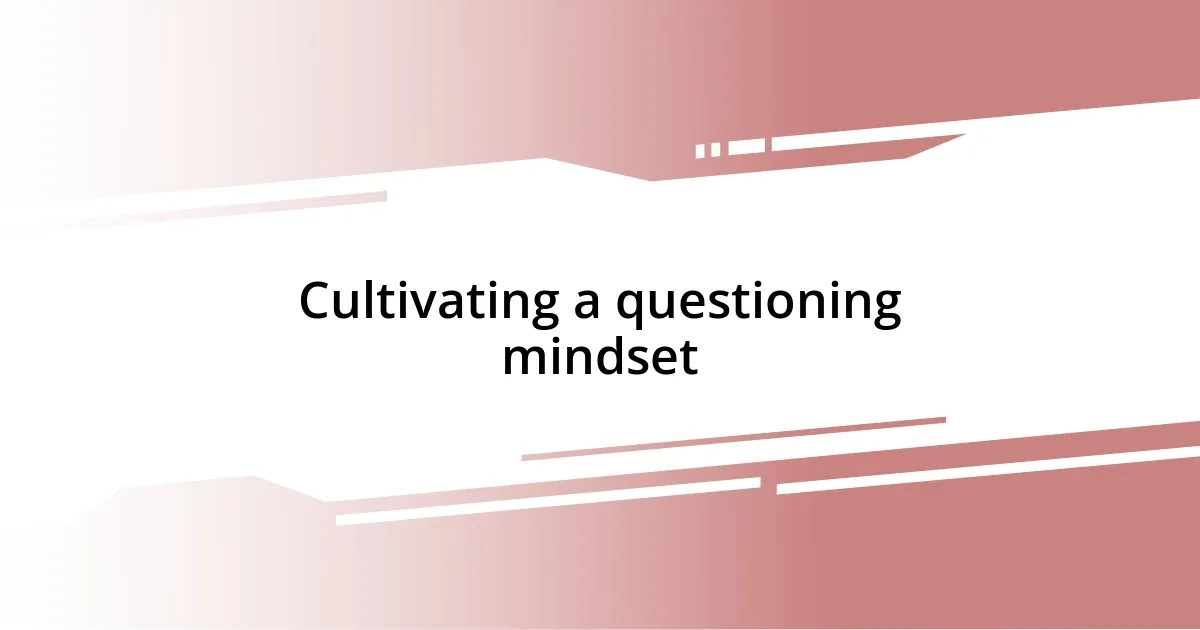
Cultivating a questioning mindset
I’ve come to realize that cultivating a questioning mindset is more than just a technique; it’s a fundamental shift in how we engage with the world. I remember a conversation with a mentor who asked me, “What questions have you not asked because you were afraid of the answers?” That single question challenged me to rethink my approach to discomfort and uncertainty. It made me aware of how often we shy away from inquiries that could lead to significant growth and understanding.
An interesting exercise I practice is journaling my questions. I set aside a few minutes each day to write down anything I’m curious about, from personal challenges to broader topics that intrigue me. This simple act not only helps me reflect but also creates a habit of noticing what truly matters to me. I find that when I revisit my questions, they often lead to unexpected insights that guide my actions. Have you ever experienced that moment when a question you posed weeks ago suddenly becomes a lens through which you view a current situation? It’s quite enlightening.
I also cherish moments of shared questioning, especially during discussions with friends or colleagues. One time, during a casual coffee chat, we posed the question, “What if we embraced failure as a necessary step in growth?” The conversation that followed was filled with laughter, vulnerability, and some profound realizations. In those exchanges, I discovered how much collective questioning can foster deeper connections and empower everyone to explore new directions. Isn’t it fascinating how questioning can bridge gaps and bring people closer together?







